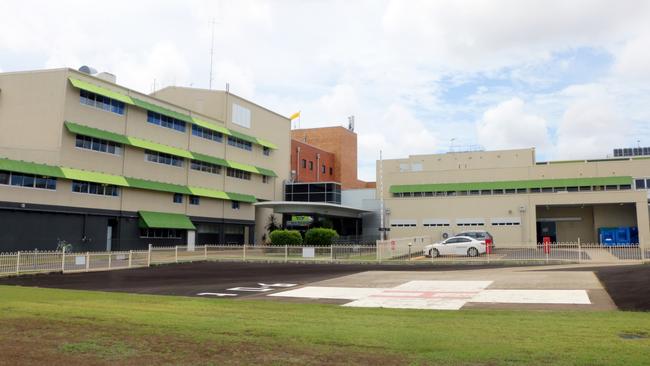Woman wins appeal against Queensland Health in industrial relations court
A court has heard concerns around a “labour expenditure budget overspend” in denying a Bundaberg Hospital worker a permanent job were unfounded.
Police & Courts
Don't miss out on the headlines from Police & Courts. Followed categories will be added to My News.
A cleaner employed at Bundaberg Hospital has won an appeal against Queensland Health after her job was not made permanent.
Queensland Industrial Relations Commission documents reveal the woman was employed on a temporary and casual basis, but that the department’s chief executive was required to make a conversion decision within 28 days of the review eligibility date of her employment.
With no determination made, a decision rejecting conversion to permanent work was made on March 24, 2022.
The cleaner appealed the decision.
The court referred to information that states a department’s chief executive may offer to convert a person’s employment under certain sections of the law only if they consider the continuing need for someone to be employed in the role, that the person is eligible for appointment in regard to the merit principle and any requirements of an industrial instrument are complied with.
If those matters are satisfied, then the department’s chief executive must offer to convert the employee’s work to employment as a general employee unless it’s not viable under certain circumstances.
Both parties agreed the cleaner satisfied the merit criterion, however, Queensland Health argued reasons against converting the cleaner’s employment based on several factors including the lack of a budget for a permanent position.
It was argued that conversion would involve an additional employee who hadn't been budgeted for, resulting in a “labour expenditure budget overspend”.

It was also heard converting the cleaner’s employment would lead to a lack of workforce flexibility.
The court concluded budgeted vacancies were not a requirement for conversion of employment, and that in such instances, the creation of a new permanent position was to be expected.
It also concluded a permanent workforce allowed for a “structured and organised workforce, which in-turn makes budgeting and expenditure more predictable”.
The court found that Queensland Health may have taken a “blanket approach” to its decision making, and that it “omitted to relate the relevant requirements under various legislative frameworks back to the appellant’s specific circumstances”.
“...I conclude that the workforce strategy issues and statutory obligations raised by the respondent do not constitute genuine operational requirements - and are not genuine, authentic reasons that could reasonably prevent permanent conversion of the appellant,” McLennan IC noted.
It was also found that the cleaner had been working in an irregular but repetitive pattern and that there would likely be a need to continue to employ her in a similar way.
According to the documents, Queensland Health relies on the cleaner on an ongoing basis.
“A finding that the work could be done on a casual or temporary basis is not tantamount to evidencing a genuine operational requirement preventing conversion to permanent,” the documents read.
The court found Queensland Health’s refusal to convert the employee to permanent work was “not fair and reasonable in the circumstances”.
It ordered that the cleaner’s appeal was allowed, that she have the decision on her employment set aside and that her employment status be converted to permanent employment.




